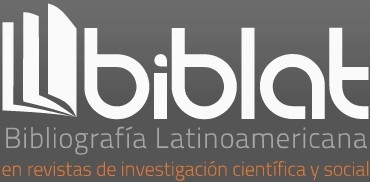Affection and Cognition: A Husserlian Sketch
DOI:
https://doi.org/10.35494/topsem.2022.2.48.824Keywords:
Affection, Pre-predicative experience, ConstitutionAbstract
The aim of the paper is to turn toward the phenomenon of affection by contrasting it with the theme of (human) cognition, which usually stands in the foreground of philosophical inquiry. In order to achieve this goal I follow these steps: (1) I discuss the Sellarsian thesis according to which ‘the nonpropositional’ (e.g., affection) is ‘epistemically inefficacious’ by bringing into play Edmund Husserl’s theory of pre-predicative experience, especially in the posthumous work Experience and Judgment (1939). (2) I maintain that this experience is ‘nonepistemic,’ and is not liable to be eliminated nor trivialized in favor of the hegemony of the ‘space of reasons’ or of empirical descriptions enframed in the causal order. Within this nonepistemic field, (3) I focus on affection, on the one hand, as something pre-given. On the other hand, I attempt to situate the phenomenon of affection in the context of the so-called “ABCs of the constitution” (Husserl, 1966, p. 125). By doing this, (4) I want to endorse Husserl’s claim that affection plays a crucial role in the constitution of sense in such a way that without it “there would be no objects at all” (Husserl, 1966, p. 164). To conclude, (5) I try to link the notion of affection with a concrete example of being distressed, to wit: the experience of hunger as described by Husserl in some passages of the Limit Problems of Phenomenology (Husserl, 2014).
Downloads
References
Bruzina, R. & Wilshire, B. (Eds.). (1978). Crosscurrents in Phenomenology. Martinus Nijhoff Publishers.
Cairns, D. (1973). Guide for Translating Husserl. Phaenomenologica (55). Martinus Nijhoff Publishers.
DeVries, W. & Triplett, T. (2000). Knowledge, Mind, and the Given: Reading Wilfrid Sellars’s “Empiricism and the Philosophy of Mind”. Hackett.
Husserl, E. (1939). Erfahrung und Urteil. Untersuchungen zur Genealogie der Logik. L. Landgrebe (Ed.). Academia Verlagsbuchhandlung.
Husserl, E. (1966). (Hua XI). Analysen zur passiven Synthesis. Aus Vorlesungs - und Forschungsmanuskripten 1918-1926. M. Fleischer (Ed.). Martinus Nijhoff Publishers.
Husserl, E. (1973). Experience and Judgment: Investigations in a Genealogy of Logic. Trad. de J. Churchill & K. Ameriks. Routledge & Kegan Paul.
Husserl, E. (1976). (Hua VI). Die Krisis der Europäischen Wissenschaften und die Transzendentale Phänomenologie. Eine Einleitung in die phänomenologische Philosophie. W. Biemel (Ed.). Martinus Nijhoff Publishers.
Husserl, E. (1991). (Hua IV). Ideen zu einer reinen Phänomenologie und phänomenologischen Philosophie. Zweites Buch, Phänomenologische Untersuchungen zur Konstitution. M. Biemel (Ed.). Springer.
Husserl, E. (2000). (Hua XXXI). Aktive Synthesen: Aus der Vorlesung “Transzendentale Logik” 1920/21. Ergänzungsband zur “Analysen zur passiven Synthesis”. R. Breeur (Ed.). Springer.
Husserl, E. (2001). Analyses Concerning Passive and Active Synthesis. Lectures on Transcendental Logic. Trad. de A. Steinbock. Kluwer.
Husserl, E. (2014). (Hua XLII). Grenzprobleme der Phänomenologie. Analysen des Unbewusstseins und der Instinkte. Metaphysik. Späte Ethik. Texte aus dem Nachlass (1908-1937). R. Sowa & T. Vongehr; Springer.
Landgrebe, L. (1982). Faktizität und Individuation. Studien zu den Grundfragen der Phänomenologie. Felix Meiner.
Lee, N. I. (1993). Edmund Husserls Phänomenologie der Instinkte. Springer.
Lee, N. I. (2020). The Pluralistic Concept of the Life-World and the Various Fields of the Phenomenology of the Life-World in Husserl. Husserl Studies, 36, 47-68.
Lévinas, E. (2002). Totalidad e infinito: Ensayo sobre la exterioridad. Trad. de D. Guillot. Ediciones Sígueme.
Lohmar, D. (1993). Grundzüge eines Synthesis-Modells der Auffassung: Kant und Husserl über den Ordnungsgrad sinnlicher Vorgegebenheiten und die Elemente einer Phänomenologie der Auffassung. Husserl Studies, 10, 111-141.
Lohmar, D. (1996). Zu der Entstehung und den Ausgangsmaterialen von Edmund Husserls Werk Erfahrung und Urteil. Husserl Studies, 13, 31-71.
Lohmar, D. (1998). Erfahrung und kategoriales Denken. Hume, Kant und Husserl über vorprädikative Erfahrung und prädikative Erkenntnis. Springer.
Lohmar, D. (2008). Phänomenologie der schwachen Phantasie. Untersuchungen der Psychologie, Cognitive Science, Neurologie und Phänomenologie zur Funktion der Phantasie in der Wahrnehmung. Springer.
Rump, J. M. (2017). The Epistemic Import of Affectivity: A Husserlian Account. Midwest Studies in Philosophy, XLI, 82-104.
Seibt, J. (1996). The Myth of Substance and the Fallacy of Misplaced Concreteness. Acta Analytica, 15, 119-139.
Sellars, W. (1948). Realism and the New Way of Words. Philosophy and Phenomenological Research, 8, 601-634.
Sellars, W. (1956). Empiricism and the Philosophy of Mind. Minnesota Studies in the Philosophy of Science, 1, 253-329.
Sellars, W. (1980). Behaviorism, Language and Meaning. Pacific Philosophical Quarterly, 61, 3-25.
Sellars, W. (1981a). Foundations for a Metaphysics of Pure Process (The Carus Lectures for 1977). The Monist, 64, 3-90.
Sellars, W. (1981b). Mental Events. Philosophical Studies, 39, 325-345.
Soffer, G. (2003). Revisiting the Myth: Husserl and Sellars on the Given. The Review of Metaphysics, 57, 301-337.
Steinbock, A. (2004). Affection and Attention: On the Phenomenology of Becoming Aware. Continental Philosophy Review, 37, 21-43.
Triplett, T. (2014). Sellars’s Misconstrual of the Defenders of the Given. History of Philosophy Quarterly, 31, 79-99.
Wittgenstein, L. (1984). Werkausgabe Band 8. Traducción de G. E. M. Anscombe. Suhrkamp.
Downloads
Published
How to Cite
Issue
Section
License

Tópicos del Seminario is licensed under a Creative Commons Reconocimiento-NoComercial-CompartirIgual 4.0 Internacional License.














